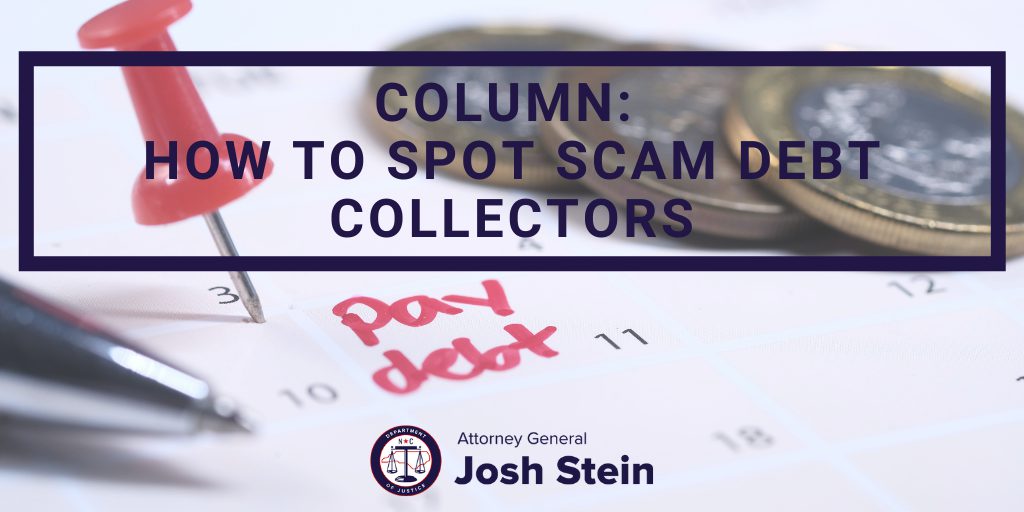
Attorney General Josh Stein
January 2022
If you have bills that are past due, you might be contacted by a debt collector. But don’t be fooled: scammers often impersonate debt collectors to try to convince people that they owe unpaid debts or try to scare or threaten people to collect on non-existent debt. Being contacted by a legitimate debt collector can be stressful on its own – make sure that you look for these signs to help you spot any scam artists.
If you’ve been contacted by someone about a debt they claim you owe, do some homework to make sure the debt and the collector are real. Get the name of the caller, the name of the collection company, its address, and its phone number. You can verify that this company is licensed by contacting the North Carolina Secretary of State and the North Carolina Department of Insurance.
You should also confirm information that debt collectors are legally required to give you:
- the amount of the debt
- the name of the current creditor
- how to get the name of the original creditor
- how to dispute the debt if you don’t think it’s correct.
A telling sign of a scammer is the usage of threatening or aggressive language. Remember that debt collectors cannot use inappropriate language, call you again and again, or threaten to arrest you or take other actions, such as suspending your driver’s license, reporting you to immigration authorities, or calling your employer. If you’re being threated, the debt collector is either a scammer or breaking the law. Hang up and report the call to NCDOJ’s Consumer Protection Division (1-877-5-NO-SCAM) and the FTC (ftc.gov/complaint).
Do not give out personal information such as your address, social security number, or birthdate to anyone who calls you, including someone claiming to be a debt collector. Real debt collectors already have this information.
Previously, debt collectors were only able to call you or send you a letter. Now, they can also contact you via text message, email, and social media. But if they contact you on social media, but they must follow certain rules. They cannot send you a message that others can see, they must identify themselves as a debt collector, and they have to tell you how you can opt out of social media communications.
If you have any questions about debt collectors, you can learn more at ftc.gov/debtcollection or at https://ncdoj.gov/protecting-consumers/credit-and-debt/debt-collectors/. If you have a complaint or are unsure about a debt collector, call us at 1-877-5-NO-SCAM or https://ncdoj.gov/file-a-complaint/.
